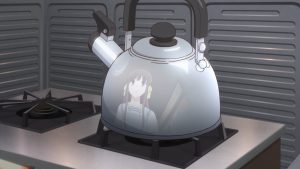 Before the episode, a quick word about the opening and closing themes for Fruits Basket 2019. After some consideration on the topic I think the reason I like these so much is that they sound like anime themes sounded 15 or 20 years ago, before the merchandising tie-in became all-important. It’s hard to describe exactly why they strike me this way, but they do – there’s a difference between a song that’s intended to bookend an episode as opposed to sell itself as a single. And selfishly, as a Furuba fan, retro is exactly what I wanted from the themes.
Before the episode, a quick word about the opening and closing themes for Fruits Basket 2019. After some consideration on the topic I think the reason I like these so much is that they sound like anime themes sounded 15 or 20 years ago, before the merchandising tie-in became all-important. It’s hard to describe exactly why they strike me this way, but they do – there’s a difference between a song that’s intended to bookend an episode as opposed to sell itself as a single. And selfishly, as a Furuba fan, retro is exactly what I wanted from the themes.
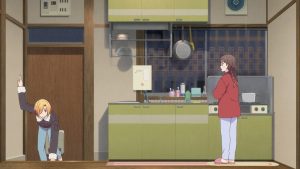 As for the content this week, in broad terms we’re solidly back on-track – though in truth, subtracting Kagura was all it really took to make that happen. For me the difference between the original Fruits Basket anime and this one is the difference between what happens when you give a good recipe (the source material) to a chef as opposed to a cook. Furuba 2019 gives you exactly what’s on the page in a perfectly competent manner, but what Akitarou Daichi did was see the potential, what this series could be with a few deft additions (and subtractions). Put another way, it’s the difference between art and craft. And while there’s nothing at all wrong with good craft, that still doesn’t mean it’s art.
As for the content this week, in broad terms we’re solidly back on-track – though in truth, subtracting Kagura was all it really took to make that happen. For me the difference between the original Fruits Basket anime and this one is the difference between what happens when you give a good recipe (the source material) to a chef as opposed to a cook. Furuba 2019 gives you exactly what’s on the page in a perfectly competent manner, but what Akitarou Daichi did was see the potential, what this series could be with a few deft additions (and subtractions). Put another way, it’s the difference between art and craft. And while there’s nothing at all wrong with good craft, that still doesn’t mean it’s art.
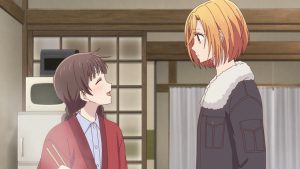 Because that recipe is much better at drama than comedy, last week’s episode and this one provide a perfect illustration of where this version can hold a candle to the 2001, and where it can’t. A storyline like this week’s doesn’t so much need Akitarou’s pinch of this, dash of that approach to work – this is Furuba at its most emotionally straightforward. As long as it’s all about the feels we’ll be fine, and this ep is certainly all about the feels. Both, I might add, for the characters and for old hands like me in the audience.
Because that recipe is much better at drama than comedy, last week’s episode and this one provide a perfect illustration of where this version can hold a candle to the 2001, and where it can’t. A storyline like this week’s doesn’t so much need Akitarou’s pinch of this, dash of that approach to work – this is Furuba at its most emotionally straightforward. As long as it’s all about the feels we’ll be fine, and this ep is certainly all about the feels. Both, I might add, for the characters and for old hands like me in the audience.
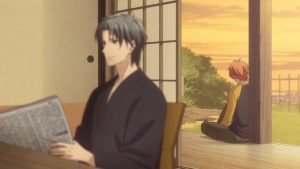 This is also the part of the story where the title is brought into the narrative for the first time. Most viewers know it by now, but fruits basket is an eponymous game among Japanese schoolchildren. One could view it as a sort of twist on musical chairs, but the nature of the game lends a special resonance to the flashback here. One doesn’t have to strain too hard to see the parallels between Tohru’s memory and not just her own current situation, but that of the Sohmas themselves. Or why she felt a particular connection to a certain animal that was tricked into being late to the party.
This is also the part of the story where the title is brought into the narrative for the first time. Most viewers know it by now, but fruits basket is an eponymous game among Japanese schoolchildren. One could view it as a sort of twist on musical chairs, but the nature of the game lends a special resonance to the flashback here. One doesn’t have to strain too hard to see the parallels between Tohru’s memory and not just her own current situation, but that of the Sohmas themselves. Or why she felt a particular connection to a certain animal that was tricked into being late to the party.
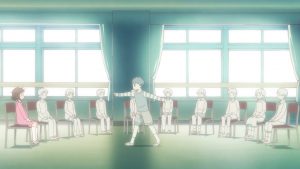 This sense of feeling left out and wanting to be included – well, it doesn’t get much more elemental than that, and it’s where Fruits Basket draws a lot of its narrative energy from. And once we meet the Honda family, it’s easy to see why Tohru feels a disconnect there. She’s not a part of it, clearly – her aunt and two cousins certainly do nothing to try and hide that fact. Rude innuendos about the Sohmas aside, what they’re truly doing is casting aspersions on Tohru herself (and one can extrapolate from there as to why they might feel the way they do).
This sense of feeling left out and wanting to be included – well, it doesn’t get much more elemental than that, and it’s where Fruits Basket draws a lot of its narrative energy from. And once we meet the Honda family, it’s easy to see why Tohru feels a disconnect there. She’s not a part of it, clearly – her aunt and two cousins certainly do nothing to try and hide that fact. Rude innuendos about the Sohmas aside, what they’re truly doing is casting aspersions on Tohru herself (and one can extrapolate from there as to why they might feel the way they do).
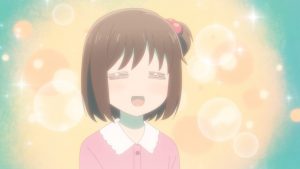 The real star of the show here is, of course, Grandpa. He may be a bit past it in terms of mental acuity, and his continually calling Tohru “Kyouko” is evidence of that (or is it?). But he’s still very much the patriarch of this family, and while he stands quietly aside through most of the events at the Honda home, when he chooses to assert himself he certainly makes it count. Hr gives his granddaughter license to think about her own feelings and not his, which is a crucial step in the process of helping her come to the right decision. And the timely arrival of Kyou and Yuki certainly doesn’t hurt either.
The real star of the show here is, of course, Grandpa. He may be a bit past it in terms of mental acuity, and his continually calling Tohru “Kyouko” is evidence of that (or is it?). But he’s still very much the patriarch of this family, and while he stands quietly aside through most of the events at the Honda home, when he chooses to assert himself he certainly makes it count. Hr gives his granddaughter license to think about her own feelings and not his, which is a crucial step in the process of helping her come to the right decision. And the timely arrival of Kyou and Yuki certainly doesn’t hurt either.
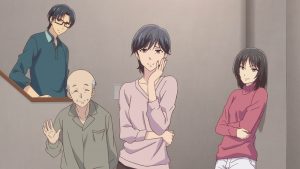 There is a certain amusement in watching those two in dual – and dueling – tsundere mode, when neither one of them is remotely convincing. The basic framework of the story in terms of relationships may already have been established but it’s definitely still evolving, and there are a lot of subtleties to it that one can discern even now, if they look closely enough. Fruits Basket is a story that rewards patience – in some cases quite a lot of it – and I hope that newer viewers prove willing to stick it out with the series until all the seeds the story is planting bear fruit. And that this version is adept enough in the telling to convince them to.
There is a certain amusement in watching those two in dual – and dueling – tsundere mode, when neither one of them is remotely convincing. The basic framework of the story in terms of relationships may already have been established but it’s definitely still evolving, and there are a lot of subtleties to it that one can discern even now, if they look closely enough. Fruits Basket is a story that rewards patience – in some cases quite a lot of it – and I hope that newer viewers prove willing to stick it out with the series until all the seeds the story is planting bear fruit. And that this version is adept enough in the telling to convince them to.


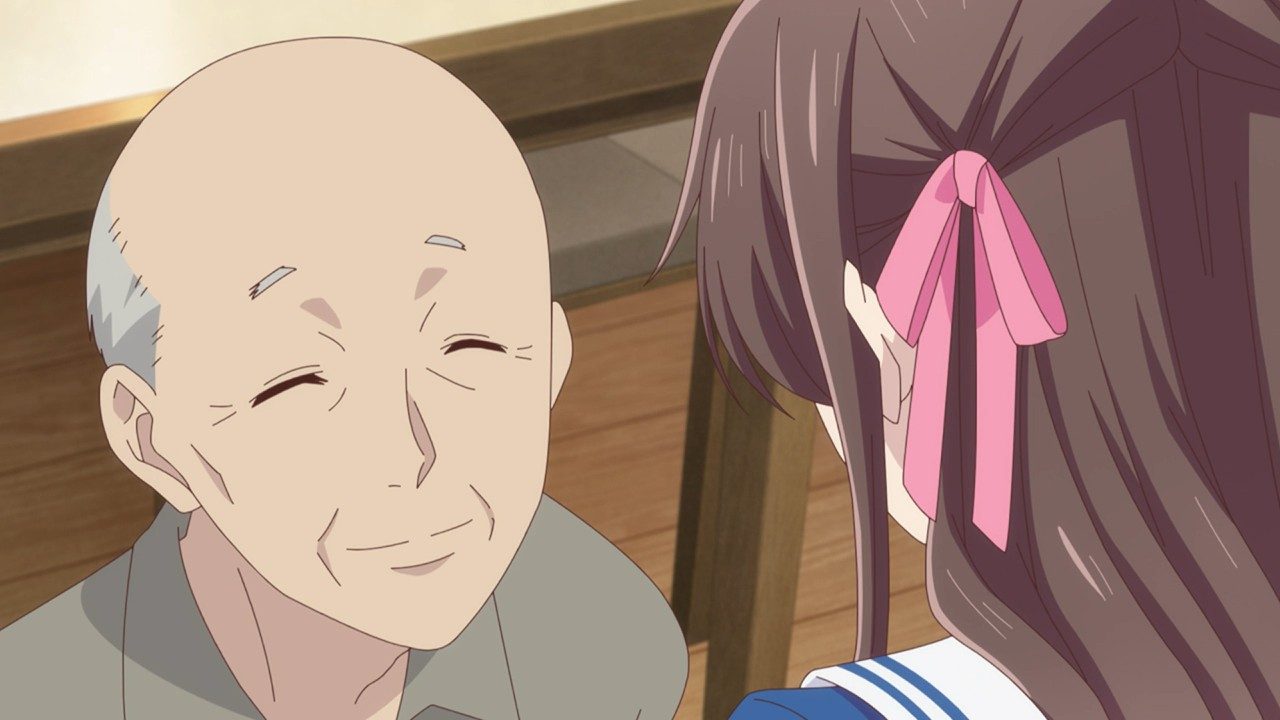
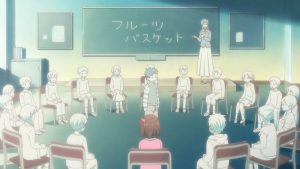
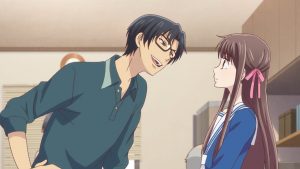
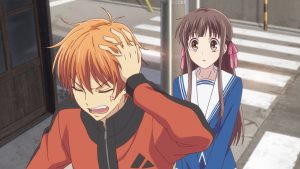
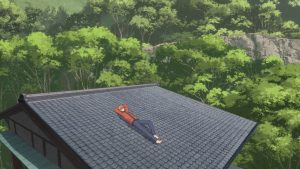


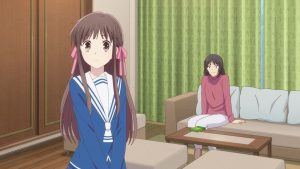
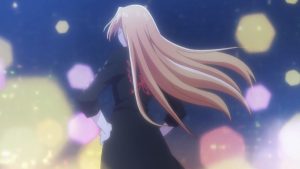
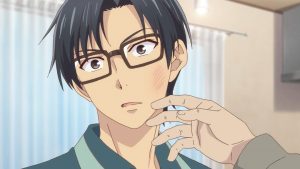
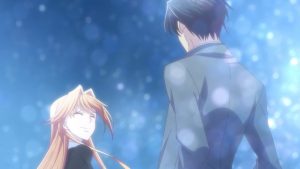
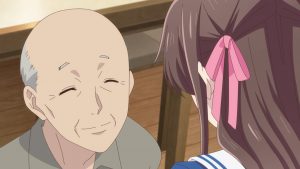
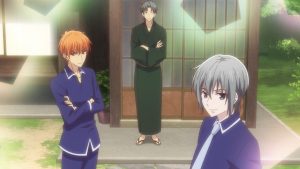
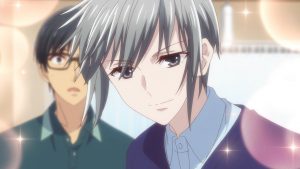
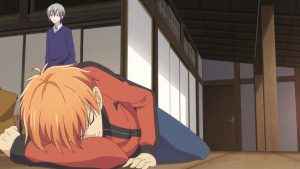
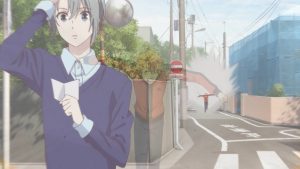
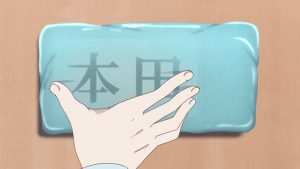
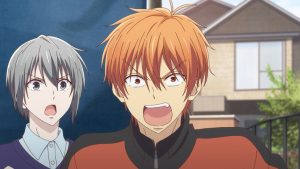
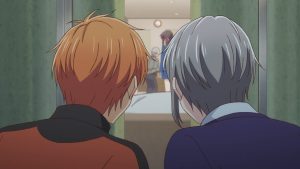
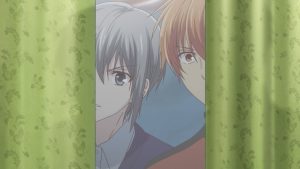
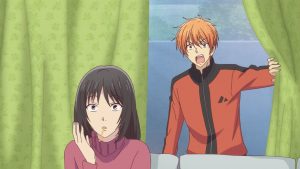
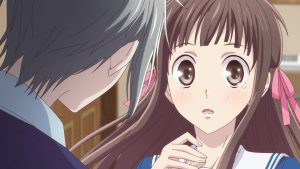
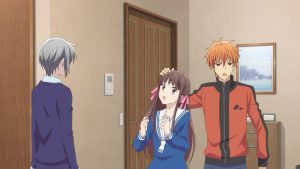
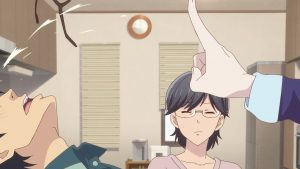
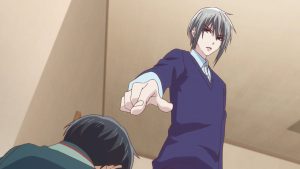

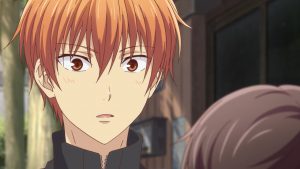
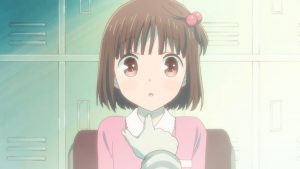
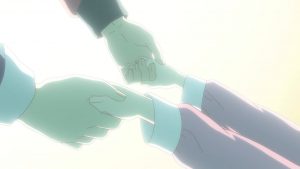
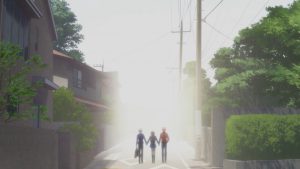
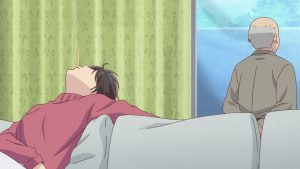
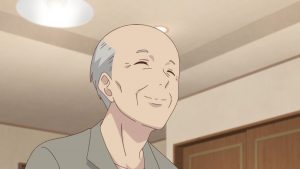
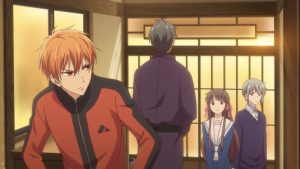
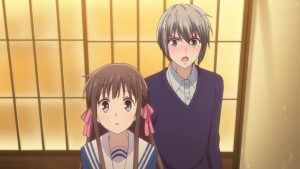


travan
May 6, 2019 at 12:38 pmIt’s funny you mention the OP and ED since they’re probably what I’m having the hardest time adjusting to. It’s not that they’re bad just…functional? The 2001 opening theme gets me all misty eyed basically every time I hear it and is bookended perfectly by the ending theme. Am legitimately struggling to think of a better pair of songs.